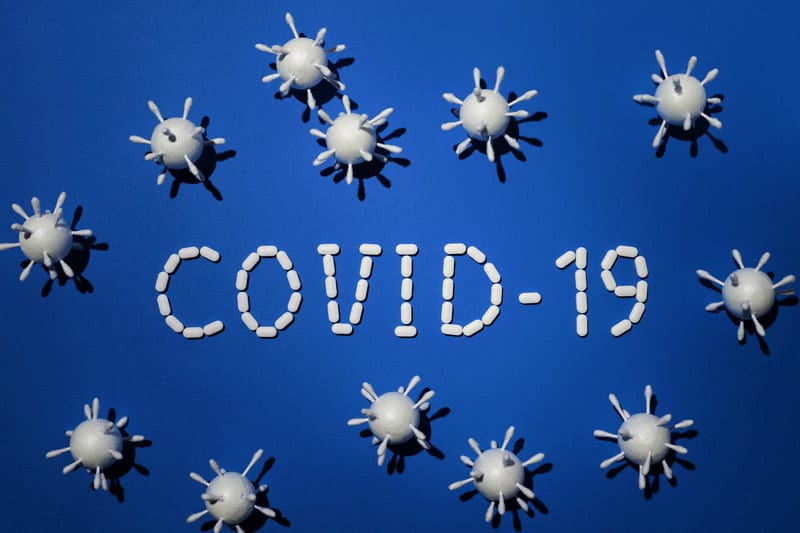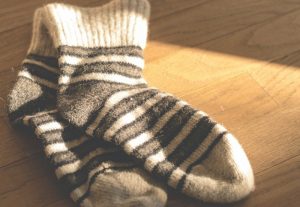What is it CoronaVirus?
“Coronavirus, covid-19 or SARS-CoV-2 if you’re feeling particularly smug, is a novel coronavirus that primarily affects the respiratory function of people that get it. Whilst not typically possessing a high mortality rate for young people, that doesn’t mean it’s not dangerous. I’m sure some of you have had personal experience with it whether that’s through yourself, friends/family or even just seen it on the news (2020 huh).
Although lockdown is being eased and it’s becoming a bit of an afterthought at times, please do not think this is a reason to not stay vigilant about it. It’s just as dangerous now as it’s ever been and has impacted our society on so many levels.
It is spread primarily through aerosol particles, person to person spread and through surfaces. It can live for 24 hours on cardboard and up to 3 days on stainless steel/plastic. Roughly 25% of people positive with Covid won’t even know they’ve had it, 80% of people will have mild/moderate symptoms in the shape of something similar to the cold or flu, 15% will be severe and 5% critical. Of course, this data changes depending on which age group you’re in, if you’re considered vulnerable/shielding or even your environment, but this is a rough estimate given by the BMJ and WHO.
Common symptoms to look out for are:
- New continuous cough >3 hours
- Fever, doesn’t have to be confirmed with a thermometer you can use your hand
- Loss of smell/taste
- Shortness of breath
There are rarer symptoms and I would encourage you to never be too careful so please speak to your GP or Dr Google if you’re worried.
Government guidelines for self-isolating is 7 days minimum or until symptoms have diminished, although the cough and loss of smell/taste may persist for weeks, so you do not need to self-isolate with these symptoms in isolation. Housemates will then be advised to self-isolate for a further 14 days (although testing may be available to stop such a long wait for both aspects). I would add that this is our governments guidelines and are different from WHO, who recommend 14 days as the virus can shed for longer so if you can be cautious, then be cautious.
Personal Experiences
“For me personally, my experience with it has been roughly in three phases:
- Living with housemates and trying to self-isolate from them as best as possible.
- Working at the hospital and switching between covid/non-covid wards without testing, so having to be incredibly careful about following precautions
- Living by myself for seemingly eternity and learning to live alone
Living with housemates
“This is a situation most of you may find yourself in and for those of you lucky enough to have never lived with other university students here’s the thick of it. They’re (we’re`) messy, loud and don’t always respect your personal space. Now normally this is mostly great, I’ve absolutely loved every university house I’ve stayed in and the people I’ve stayed with but it doesn’t get away from the fact that this is nowhere near an ideal scenario to be following guidelines so here’s some tips from clinicians I’ve talked to/the BMJ and also just in my experience having done it. This especially applies to anyone showing symptoms but just remember that as stated before sometimes these may be clinically silent
- Designate a bathroom to anyone ill if possible/kitchen times, close the door and open windows and disinfect touched surfaces after each use (at least its summer!)
- Don’t share dishes/kitchen stuff
- Please don’t have all your toothbrushes in one cup touching each other
- If someone is ill and using the public space then encourage them to cover their mouth (doesn’t have to be a mask but even a scarf will do)
- Clean frequently touched surfaces daily (light switches, counter tops, door handles etc)
- Soap and water is best for hand hygiene but if you don’t have that then it needs to be at least 60% alcohol, THIS IS MOST IMPORTANT
At work (Royal Derby Hospital)
“I’ve been asked to write this by William so please don’t think I’m sat here clapping myself (I only do that at 8pm every Thursday). Hospitals have been weird, they’re always a bit weird but never quite like this. My brief experience in all this has been about 90% calm, quiet and well-staffed and then 10% absolute chaos. The NHS certainly wasn’t prepared for this and it’s only been the heroic work by all levels of staff that’s allowed us to cope (as well as some tough decisions unfortunately regarding what is essential/non-essential). As bank staff it has been particularly harrowing at times as I’ve had to go from working in covid positive wards with minimal PPE one day to peri-natal/vulnerable wards the next without being tested, so I’ve had to be incredibly cautious regarding my own health and also strict with PPE/hand hygiene. It’s been particularly heart-breaking working in mental health with dementia patients and those whose already fragile mental health is now suffering through increased anxiety/lack of routine that covid brings as there were no visitors allowed and with the news being so scary.
Living by myself
“I’ve been living by myself now for just over 2 months. I’ve lived alone briefly before but never to this extent and I think that being creative and keeping myself busy has really helped with my mental health. Covid is scary and it’s easy to understand why people may be suffering mentally as well as physically because of it, so there’s no shame in seeking help. I can’t speak for everyone but things that have really helped me are:
- Zoom social gatherings with friends/family
- Playstation (spent about half my time in the gulag on COD admittedly)
- A fitness regime (crucial for feeling good about myself and also not piling on the pounds)
- Work (Pretty much the only face to face contact I’ve had but hey its better than nothing)
- A routine (I’ve really struggled with keeping up with uni work through all this so fairly hypocritical for me to say but it’s helped me to use another room as my designated ‘study room’ and to have a slight routine to stick to”
Written by Ryan Duffy (3rd year medical student at UoN), all information was sourced from the BMJ, WHO, gov.uk and my own personal experience. Information is evolving rapidly so stay alert for any changes.





